Auto insurance Tucson AZ
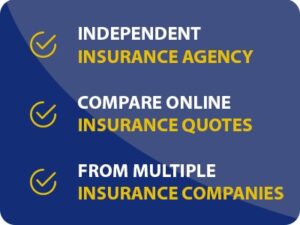 Auto insurance is a critical aspect of vehicle ownership, especially in Tucson, AZ, where the unique driving conditions and state laws make having the right coverage essential.
Auto insurance is a critical aspect of vehicle ownership, especially in Tucson, AZ, where the unique driving conditions and state laws make having the right coverage essential.
Whether navigating the bustling city streets or exploring Arizona’s scenic routes, understanding the ins and outs of auto insurance can protect you, your vehicle, and your finances from unexpected events.
This article aims to provide a comprehensive guide to auto insurance in Tucson, AZ, covering everything from available coverage types to the factors that influence insurance rates. We’ll also highlight the best auto insurance companies in the area, explore various coverage options, and discuss potential discounts to help you secure the best possible deal on your auto insurance policy.
With the correct information and guidance, you can make informed decisions about your auto insurance coverage, ensuring you’re well-protected on the road ahead.
START FREE ONLINE QUOTE NOW
At Blake Insurance Group, we respect your privacy. Your personal information is used solely for quote purposes and is not shared or sold
Types of Auto Insurance Coverage
Auto insurance is a multifaceted product designed to protect drivers from financial loss in the event of an accident or other vehicle-related incident. Here are the primary types of auto insurance coverage available:
Liability Coverage
Liability coverage is a fundamental part of an auto insurance policy. It consists of two main components: bodily injury liability and property damage liability. Bodily injury liability helps cover the costs of injuries to others if you are at fault in an accident. In contrast, property damage liability pays for damage to another person’s property, such as their vehicle. Liability coverage is mandatory in most states.
Uninsured and Underinsured Motorist Coverage
Uninsured motorist (UM) coverage protects you if you’re involved in an accident with a driver who lacks insurance. Underinsured motorist (UIM) coverage comes into play when the at-fault driver’s insurance is insufficient to cover the damages. Some states require drivers to carry UM or UIM coverage.
Comprehensive Coverage
Comprehensive coverage pays for damage to your vehicle caused by events other than collisions, such as theft, vandalism, or natural disasters. It’s an optional coverage that is often purchased alongside collision coverage.
Collision Coverage
Collision coverage helps pay for damage to your vehicle resulting from a collision with another car or object, regardless of who is at fault. This coverage is typically optional unless required by a lienholder or lender.
Personal Injury Protection (PIP)
Personal Injury Protection, or no-fault insurance, covers medical expenses for you and your passengers regardless of who is at fault in an accident. PIP is required in some states and optional in others.
These coverages are the building blocks of an auto insurance policy, and understanding them is crucial for drivers seeking the right protection for their needs.
Auto Insurance Coverage Options
When considering auto insurance, it’s essential to understand the various options available beyond the standard liability, comprehensive, and collision coverage. These additional options can provide further financial protection and convenience in the event of an accident or other vehicle-related issues. Here are some of the critical coverage options that drivers can consider:
Gap Insurance
Gap insurance is designed for drivers who finance or lease their vehicles. It covers the “gap” between the vehicle’s actual cash value and the amount still owed on the loan or lease if the car is totaled or stolen. This type of insurance is precious in the early years of vehicle ownership when depreciation can outpace the loan or lease payoff schedule. Adding gap insurance to a policy with collision and comprehensive coverage typically costs about an additional $20 a year.
Rental Reimbursement
Rental reimbursement, also known as transportation expense coverage, helps pay for a rental car or other transportation costs if your vehicle is in the shop due to a covered loss, such as an accident. This optional coverage typically has daily and per-claim limits, such as $30 per day up to a maximum of $900 per claim. It’s important to note that rental reimbursement coverage does not apply for routine maintenance or if you need a rental car for a vacation.
Roadside Assistance
Roadside assistance coverage provides help when you’re stranded due to vehicle breakdowns. Services typically include towing, battery jump-starts, flat tire changes, fuel delivery, and lockout assistance. Roadside assistance can be obtained through your auto insurance company, auto clubs like AAA, or even some credit card companies. Coverage details and costs vary, but insurance companies often offer this service for an additional $10 to $20 per year. It’s a valuable service for peace of mind, especially if you frequently travel or have an older vehicle.
These coverage options can enhance your auto insurance policy by providing additional protection and convenience. When selecting coverage, consider your needs, vehicle value, and financial situation to make informed decisions that best suit your circumstances.
How Much is Car Insurance in Tucson and Factors Affecting Auto Insurance Rates
The cost of car insurance in Tucson, AZ, can vary significantly based on several factors. On average, drivers in Tucson pay about $2,402 per year for car insurance. Still, rates can be as low as around $49 per month for a minimum-coverage policy from certain providers like Travelers. Understanding the various factors affecting auto insurance premiums is important to anticipate your costs better and find ways to save. Here are some of the critical factors:
Car’s Make and Model
The make and model of your vehicle play a significant role in determining your insurance rates. Certain cars, like sports cars or luxury vehicles, are associated with higher premiums due to the increased risk of theft, higher repair costs, or the potential for riskier driving behavior.
Driving Habits
Your driving habits, including how often and hard you brake, acceleration patterns, and the time of day you typically drive, can influence your premiums. Usage-based insurance programs can track these habits to adjust rates accordingly.
Demographic Factors
Demographic factors such as age, gender, and marital status can impact insurance rates. Younger, less experienced drivers often pay more, while the gender gap in insurance rates increases as drivers reach their 30s.
Coverage, Limits, and Deductibles
The types of coverage you select, along with the limits and deductibles you choose, will affect your premiums. Higher coverage limits and lower deductibles typically result in higher insurance costs.
Location
Where you live and park your car can also affect your insurance rates. Urban areas with higher rates of accidents, theft, and vandalism typically have higher premiums than rural areas.
Credit History
In many states, your credit history can influence your car insurance rates. A better credit score can lead to lower premiums.
Driving Record
Your driving record, including any violations or accidents, will directly impact your insurance costs. A clean driving record can lower rates, while a history of traffic violations or accidents can increase your premiums.
Understanding these factors can help you make informed decisions about your auto insurance and potentially find ways to lower your rates. It’s always a good idea to shop around and compare quotes from multiple insurance providers to find the best coverage at the most affordable price.
| Age Group | Comprehensive Coverage Annual Cost | Liability Only Coverage Annual Cost |
|---|---|---|
| Teen Driver (16-19) | $4,500 | $2,500 |
| Young Adult (20-25) | $2,500 | $1,200 |
| Adult (30-60) | $1,500 | $650 |
| Senior (60+) | $1,600 | $700 |
Auto Insurance Discounts
Auto insurance discounts are a great way for drivers to save money on their policies. Insurance companies offer various discounts based on driver behavior, policy bundling, vehicle safety features, and more. Here are some of the most common discounts available to drivers:
Safe Driver Discounts
Safe driver discounts reward drivers with clean driving records without at-fault accidents or moving violations. Programs like State Farm’s Drive Safe & Save™ can offer discounts of up to 30% based on safe driving habits.
Multi-Policy Discounts
Bundling multiple insurance policies with the same company can lead to significant savings. For example, combining auto and home insurance policies can save customers over $950 per year with Liberty Mutual. Nationwide also offers discounts for bundling auto with home, renters, or life insurance, with up to 20% savings.
Anti-Theft Device Discounts
Installing anti-theft devices in your vehicle can lower your comprehensive coverage costs. Twelve U.S. states require insurance companies to offer discounts for cars equipped with anti-theft devices. The discount typically ranges from 15% to 20% off the comprehensive portion of your insurance premium.
Other Common Discounts
– **New Car Discount**: Some companies offer discounts for 3-year-old or newer vehicles. The vehicle must meet specific criteria, such as the current or previous year’s model and the first owner.
– **Good Student Discount**: Students who maintain good grades can qualify for discounts ranging from 5% to 25%.
– **Professional and Organizational Discounts**: Discounts are available for members of certain professions or organizations. This can include teachers, first responders, and members of specific clubs or groups.
– **Automatic Payment Discounts**: Setting up automatic payments using an electronic funds transfer (EFT) can also lead to discounts.
– **Multi-Vehicle Discounts**: Insuring more than one vehicle with the same company can lead to savings.
It’s important for drivers to inquire about available discounts and to provide their insurance companies with any relevant information that might qualify them for savings. Discounts can vary by state and insurance provider, so reviewing your policy regularly and discussing potential discounts with your insurance agent is beneficial.
Best Auto Insurance Companies in Tucson, AZ
 Progressive
Progressive
While specific information about Progressive was not found in the search results, it is known that Progressive offers a variety of coverage options and discounts. These may include multi-policy discounts, safe driver discounts, and discounts for paying in full. Progressive also offers a program called Snapshot, which personalizes your rate based on your actual driving. The company is known for its competitive rates and strong customer service. However, the exact cost, rating, and value benefits would depend on various factors including the driver’s history, location, and the type of coverage chosen.
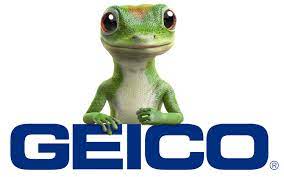 GEICO
GEICO
GEICO is known for combining affordable and competitive rates with outstanding customer service. The company offers a variety of coverage options, including standard liability, comprehensive, and collision coverages, as well as underinsured motorist coverage and personal injury protection. GEICO’s customer satisfaction rating is high, with a 97% satisfaction rate mentioned, indicating strong customer service. The company also provides a number of discounts, including military discounts and various vehicle insurance options. GEICO’s average annual rates are among the lowest for good drivers, with costs averaging $461 per year for minimum coverage and $1,596 per year for full coverage.
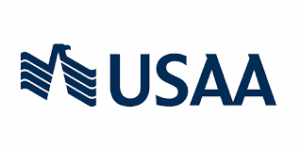 USAA
USAA
USAA is highly rated for customer service and offers coverage in all 50 states and Washington, D.C. It is, however, only available to military members, veterans, and their families. USAA is known for its competitive rates, with an average monthly cost for all auto insurance policies issued in Arizona in 2022 being $230 per month. The company offers comprehensive collision and other coverages to fit individual needs, along with available 24/7 roadside assistance. USAA also provides a variety of discounts, including savings for garaging your car on a military installation, insuring multiple vehicles, and bundling auto and property policies.
 Liberty Mutual
Liberty Mutual
Liberty Mutual offers competitive pricing in multiple categories and various discounts that could lead to a 30% discount by participating in their programs. The company provides multiple coverage options, including OEM parts coverage, rental reimbursement, and roadside assistance. However, Liberty Mutual’s claims and customer service ratings are mixed, with an 870-point score in the J.D. Power 2022 U.S. Auto Insurance Claims Satisfaction Study, slightly below the national average. Despite this, Liberty Mutual is considered a good choice overall, with customized car insurance and a highly-rated app for policy management.
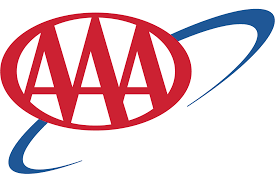 AAA
AAA
AAA Insurance offers competitive rates and knowledgeable agents to help customers find the right coverage at the right price. Customers can save money by bundling their auto insurance with AAA home insurance. AAA provides a variety of discounts and coverage options, although specific details about their rates and customer service ratings are not provided in the search results. However, AAA is known for its comprehensive roadside assistance programs and other travel-related benefits, which add value to their auto insurance policies.
 The General
The General
The General specializes in high-risk car insurance, often providing coverage for drivers who may have difficulty finding insurance elsewhere due to their driving records. The General’s full coverage rates average $3,154 per year, higher than many competitors, especially for good drivers over 25. However, for high-risk drivers, The General may offer more competitive rates. The company operates without agents, which can reduce overhead costs and potentially lead to lower premiums and policy costs for its target demographic.
![]() State Farm
State Farm
State Farm offers various coverage options and add-ons like roadside assistance, rental car reimbursement, and travel expense coverage. The company charges about $1,657 per year or $138 per month for full-coverage insurance; this cost is lower for liability car insurance. State Farm has a 9.4 out of 10 rating, with high scores in industry standing, availability, coverage, cost, and customer experience. The company also offers a variety of discounts, including a program that offers an initial discount of about 5% when customers agree to share certain driving information, with the potential for the discount to increase up to 30% based on driving habits.
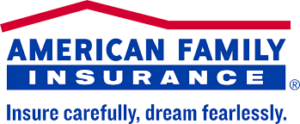 American Family Insurance
American Family Insurance
American Family Insurance is known for its affordable rates and comprehensive coverage options. The average cost of full-coverage insurance from American Family Insurance is $1,851 per year, while its average rate for minimum coverage is $810 per year. The company has a 9.1 out of 10 rating, with high scores in cost, coverage, and customer experience. American Family Insurance offers standard auto coverage types like liability, comprehensive, collision, medical payments, and uninsured and underinsured motorist coverage. The company also offers many discount opportunities to help you save on insurance.
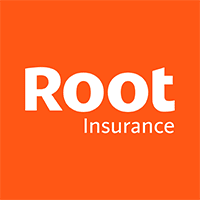 Root Insurance
Root Insurance
Root Insurance is unique in the industry because it bases insurance rates on a person’s driving habits, which are determined through a driving test. This usage-based insurance model can benefit drivers with good habits, as they may receive lower rates. Root Insurance offers all types of standard car insurance coverage, including bodily injury liability, property damage liability, collision, and comprehensive insurance. The company is rated 7.7 out of 10.0 and may be a good option for those interested in usage-based insurance. However, Root does not offer traditional discounts since the final quote includes all applicable savings based on driving behavior.
 Auto-Owners Insurance
Auto-Owners Insurance
Auto-Owners Insurance is rated 8.9/10.0 for its low-rate options. Despite a less impressive customer rating on some review platforms, it is known for its competitive rates and excellent customer service. It offers all the industry’s basic car insurance options, including liability, comprehensive, collision, uninsured/underinsured motorist coverage, and more. Auto-Owners Insurance rates are competitive, with a 35-year-old with a good driving record and good credit paying about $1,619 annually. The company also offers a variety of discounts that could further reduce rates.
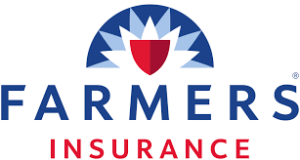 Farmers Insurance
Farmers Insurance
Farmers Insurance offers a wide range of coverage options, including standard car insurance coverage and additional options like accident forgiveness and new car replacement coverage. A full coverage car insurance policy from Farmers costs $3,169 annually. The company has a rating of 8.6 out of 10 for its wide range of coverage options, add-ons, and generous discount offerings. Farmers Insurance also offers many discounts, especially for good drivers.
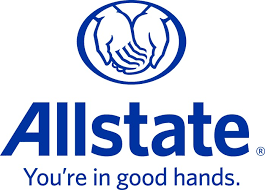 Allstate
Allstate
Allstate’s coverage costs about 29% more than the national average, around $2,598 annually. The company has many discount opportunities to help drivers save money, including a good student discount and a multi-policy discount. Allstate offers 12 types of car insurance coverage in addition to discount opportunities. The company is highly rated within the industry, but customer reviews on the BBB website are low.
 Mercury
Mercury
Mercury Insurance offers coverage in a limited number of states but is known for its low costs and selection of coverage options and add-ons. Coverage options, deductibles, and driving history determine the company’s premiums. Mercury’s rates are competitive, with a full coverage policy costing $1,487 annually for a good driver. The company also offers discounts, although the list is less extensive than some competitors. Customer reviews suggest that while Mercury has affordable rates, there may be issues with customer service and claims processing.
Auto Insurance Tucson, AZ - FAQs
How to Find the Best Auto Insurance in Tucson, AZ
To find the best auto insurance in Tucson, AZ, consider the following steps:
- Compare Quotes: Obtain quotes from multiple insurance providers to compare rates. Using Blake Insurance Group Online Tool
- Check Customer Reviews: Look for insurers with excellent customer service reviews. USAA, for example, is highly rated in Tucson for its customer service.
- Consider Coverage Needs: Determine the coverage options you need, such as liability, comprehensive, or collision coverage.
- Look for Discounts: Inquire about discounts for which you may be eligible, such as safe driver discounts or multi-policy discounts.
- Evaluate Company Ratings: Research the financial strength and customer satisfaction ratings of insurance companies
How Much Does Car Insurance Cost in Tucson, AZ?
In Tucson, Arizona, the average car insurance cost is $1,695 per year or $141 per month. However, rates can vary significantly based on factors like coverage type, driving history, and the insurance company.
Why is AZ Car Insurance So High?
Car insurance rates in Arizona can be high due to several factors, including higher-than-average traffic fatalities, with 1.4 deaths per 100 million miles driven. Other contributing factors include the state's high urban population density and highway traffic density.
Is it Cheaper to Insure a Car in Arizona or California?
It is generally cheaper to insure a car in Arizona than in California. The typical annual car insurance rate in Arizona is $349 less expensive than in California. However, rates can vary based on individual circumstances.
What is Recommended for Car Insurance Coverage in Arizona?
In Arizona, it's recommended to have at least the state-mandated minimum liability coverage of 15/30/10, which includes:
- $15,000 for bodily injury per person
- $30,000 for bodily injury per accident
- $10,000 for property damage per accident
Additionally, considering comprehensive and collision coverage for full protection is advisable, especially if you have a newer vehicle or are financing your car.

